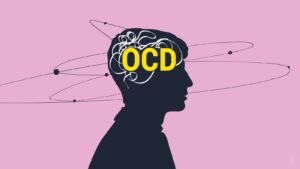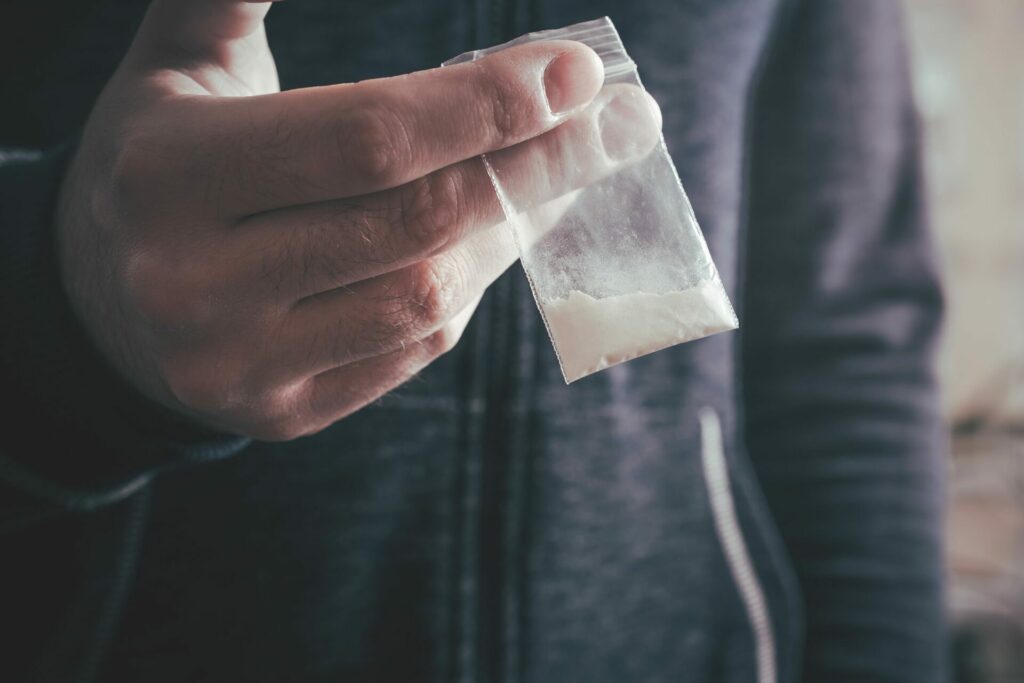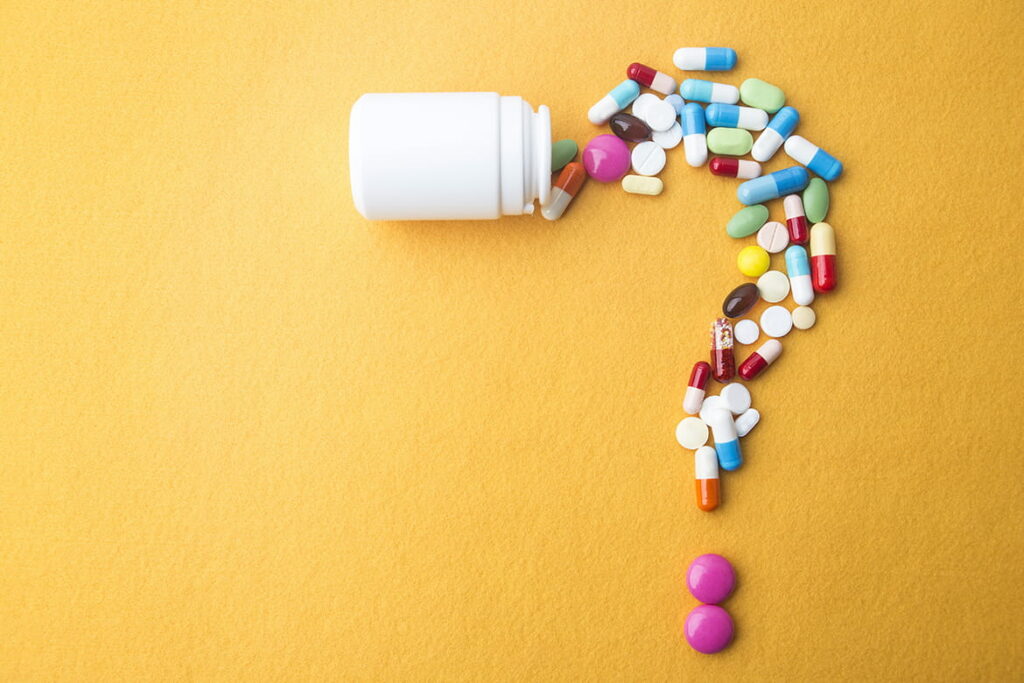Obsessive Compulsive Disorder (OCD) and addiction are serious illnesses that can impact every area of your life. If you are struggling with OCD or addiction, you may feel like you are alone and that there is no way out. This is not true! There are many ways to overcome these illnesses and lead a happy, healthy life. In this blog post, we will discuss the connection between OCD and addiction, as well as how to get help for both conditions.
Contents
What Is OCD?
 OCD is an anxiety disorder that causes people to have intrusive, unwanted thoughts (obsessions) and/or engage in repetitive behaviors (compulsions). People with OCD often realize that their obsessions are irrational, but they cannot control them. compulsions are often performed in an attempt to relieve the anxiety caused by the obsessions. However, compulsions only provide temporary relief and can make OCD worse.
OCD is an anxiety disorder that causes people to have intrusive, unwanted thoughts (obsessions) and/or engage in repetitive behaviors (compulsions). People with OCD often realize that their obsessions are irrational, but they cannot control them. compulsions are often performed in an attempt to relieve the anxiety caused by the obsessions. However, compulsions only provide temporary relief and can make OCD worse.
OCD is also a type of mental illness. Mental illnesses are health conditions that affect a person’s thinking, feeling, and mood. They are not caused by physical illnesses. Mental illnesses can be mild, moderate, or severe. OCD is a moderate to severe mental illness.
People with OCD often have other mental health conditions, such as anxiety disorders, depression, and substance abuse disorders. This is called comorbidity. Comorbidity is when two or more health conditions occur in the same person at the same time. People with comorbidity often have more symptoms than people with only one health condition. They also have a greater risk for complications from their health conditions.
What Is Addiction?
 Addiction is a complex brain disorder. It is characterized by compulsive drug seeking and use, despite harmful consequences. Drug addiction is a brain disease because drugs change the brain—they change its structure and how it works. These brain changes can be long-lasting and can lead to the harmful behaviors seen in people who abuse drugs.
Addiction is a complex brain disorder. It is characterized by compulsive drug seeking and use, despite harmful consequences. Drug addiction is a brain disease because drugs change the brain—they change its structure and how it works. These brain changes can be long-lasting and can lead to the harmful behaviors seen in people who abuse drugs.
Addiction is a chronic disease, which means it lasts for a long time and often requires treatment to manage. People who are addicted to drugs may need help from medical professionals, counselors, therapists, and peer support groups to overcome their addiction.
Sometimes there may be also many environmental and social factors that contribute to addiction. For example, people who are exposed to violence or trauma are at a greater risk of developing an addiction.
Sometimes many genetic factors contribute to addiction. For example, people who have a family history of addiction are more likely to develop an addiction themselves.
Relationship Between OCD And Addiction

The relationship between OCD and addiction is a complicated one. OCD can lead to addiction, and addiction can lead to OCD. The two illnesses often feed off of each other in a destructive cycle.
OCD can cause a person to turn to drugs or alcohol in an attempt to self-medicate. The compulsions and obsessions of OCD can be extremely overwhelming and stressful. A person may turn to substances as a way of numbing their anxiety or escape from their thoughts.
Addiction, on the other hand, can trigger OCD symptoms. The chaotic nature of addiction can create a lot of uncertainty and anxiety in a person’s life. This can lead to obsessive thoughts about using drugs or alcohol as well as compulsive behaviors like hoarding supplies or engaging in risky behaviors.
Also, many people may suffer from both OCD and addiction at the same time. This is called a co-occurring disorder, and it can be a very difficult situation to manage. If you suffer from both OCD and addiction, it’s important to get treatment for both illnesses. Also, there can be many different types of treatment for OCD and addiction, so it’s important to find the right one for you.
There is hope for recovery from both OCD and addiction. With the right treatment, you can overcome your illnesses and live a healthy, happy life. If you or someone you know suffers from OCD or addiction, don’t hesitate to seek help. There are many resources available to get you started on the road to recovery.
Negative Impacts of OCD and Addiction

There can be many negative impacts of having OCD and addiction. Some of these negative impacts are:
•Your family and friends may suffer. Your illnesses can put a strain on your relationships. You may become isolated and withdrawn from the people you love.
•Your mental and physical health may suffer. OCD and addiction can take a toll on your body and mind. You may experience poor mental health, physical health problems, and even premature death.
•Your career may suffer. OCD and addiction can make it difficult to keep a job or advance in your career. You may find it hard to concentrate at work or meet deadlines.
•You may lose important things in your life. Because of your illnesses, you may lose your home, your possessions, your job, or even your family and friends. It’s important to get help before you lose everything.
OCD and addiction can have a devastating impact on your life. But there is hope for recovery. With the right treatment, you can overcome your illnesses and lead a happy, healthy life. If you or someone you know suffers from OCD or addiction, don’t hesitate to seek help. There are many resources available to get you started on the road to recovery.
Treating OCD and Addiction

There are many different types of treatment for OCD and addiction. Some of these treatments are:
Medications
Medications are often used to treat OCD and addiction. Also, Medications can help to reduce anxiety, ease compulsions and obsessions, and control cravings. However, Sometimes these medications need to be taken for a long time, and sometimes they can have side effects. However, Be sure to talk to your doctor about any medications you are taking or considering taking.
Some of these medications can be:
•Antidepressants: These can be used to treat OCD by reducing obsessions and compulsions. Furthermore, Common antidepressants used to treat OCD include fluoxetine (Prozac), paroxetine (Paxil), and sertraline (Zoloft).
•Anti-anxiety medications: These can be used to help reduce anxiety. Common anti-anxiety medications include alprazolam (Xanax) and lorazepam (Ativan).
•Mood stabilizers: These can be used to help stabilize moods. Furthermore, Common mood stabilizers include lithium and valproic acid.
Behavioral Therapy
Behavioral therapy is a type of psychotherapy that can be used to treat OCD and addiction. Furthermore, It can help you to identify and change negative thoughts and behaviors. It can also help you to learn new, positive coping skills.
There are many different types of behavioral therapy, but some common ones are:
•Cognitive behavioral therapy (CBT): This is a type of therapy that can help you to identify and change negative thoughts and behaviors. CBT is effective in treating OCD and addiction.
•Exposure and response prevention (ERP): This is a type of CBT that involves exposure to the things that trigger your OCD or addiction, followed by learning ways to resist the urge to engage in compulsions or use substances. ERP is an effective treatment for OCD.
•Dialectical behavior therapy (DBT): This is a type of therapy that can help you to manage emotions, cope with stress, and make positive changes in your life. DBT is an effective addiction treatment.
Support Groups
Support groups can provide emotional support and practical advice for people with OCD and addiction. In a support group, you will meet other people who are dealing with similar issues. This can be a great way to share your experiences and learn from others. Some of these support groups can be:
•The internet: There are many online support groups for OCD and addiction. However, Some of these groups are moderated by mental health professionals.
•In person: There are also many in-person support groups for OCD and addiction. These groups can be found in community centers, hospitals, or mental health clinics.
Self-Care
An important part of recovery from OCD and addiction is self-care. Furthermore, This means taking care of yourself physically, emotionally, and mentally. Furthermore, Some self-care activities that can help you to cope with your illnesses include:
•Exercise: Exercise can help to reduce stress and improve your mood. It can also help you to sleep better.
•Eat a healthy diet: Eating a healthy diet can help you to feel better physically and mentally.
•Get enough sleep: Getting enough sleep is important for physical and mental health.
•Take breaks: When you’re feeling overwhelmed, take a break from whatever you’re doing. Take some time to relax and rejuvenate.
Treatment for OCD and addiction can be effective. If you or someone you know suffers from these illnesses, don’t hesitate to seek help. There are many resources available to get you started on the road to recovery. With the right treatment, you can overcome your OCD and addiction and lead a happy, healthy life.
Conclusion
OCD and addiction are two very different things. However, they can both be overcome with the help of a professional. If you or someone you know is struggling with either of these illnesses, don’t hesitate to reach out for help. Furthermore, there is no shame in admitting that you need assistance and there is no reason why you should have to suffer alone. However, With the right treatment, recovery is possible.
If you or someone you love needs help overcoming OCD or addiction, we encourage you to contact us today. Furthermore, We offer a variety of services that can be tailored to your specific needs and we will work with you to create a treatment plan that will give you the best chance at success. Don’t wait any longer, call us today and let us help you take back control of your life. Your mental health — Your psychological, emotional, and social well-being — has an impact on every aspect of your life.
Hope this article was of help to you! If you are suffering from OCD and addiction, you may seek help from Therapy Mantra. We have a team of highly trained and experienced therapists who can provide you with the tools and skills necessary for overcoming OCD and addiction. Contact us today to schedule an online therapy or download our free OCD treatment app on Android or iOS for more information.


